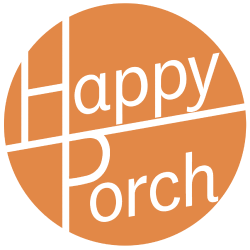One concept that nails the key benefit of rental businesses
Last week things took an interesting turn on HappyPorch Radio.
Taking a step back to look at the big picture from an outside perspective, we were joined by Lucy Wishart. A Lecturer on Circular Economy and Sustainable Transformations at University of Edinburgh, she brought an academic take on things that shined a light on new ways of seeing circularity and the circular economy as it relates to society as a whole. This had our hosts both inspired and sharing their own insights we think you’ll find valuable.
While the whole of the episode was full of perspectives, examples and ideas that will stay with you, it’s the concept of consumption work, and how rental businesses reduce it for consumers, that we wanted to bring to the fore today.
As Lucy describes it, consumption work is
“…work that we do or that happens in order to allow us to consume.”
What does that mean, practically?
“So if you imagine that you buy your furniture from IKEA versus buying your furniture from a traditional furniture store, then you have to do some consumption work at home to create your chair to sit on. Once we finish our yogurt pot or whatever, we've gotta give it a clean out and put it in the right bin.
And quite a lot of the time when we're thinking about circular systems, that increases the consumption work for individuals. So it takes more time to shop secondhand, it takes more time to sort things for recycling, it takes more time to repair things.”
Many have argued that consumption work is not accounted for or generally underplayed in discussions about the circular economy. That it is perhaps a stumbling block to its greater presence in our world.
However, Lucy brings up a head turning point:
“One of the things about rental is quite a lot of that consumption work is taken out and put within a business or an organisation. So the cleaning, the repair, the sorting, the providing it at the right time. I think there's quite a lot of consumption work involved in storage and moving your stuff around.”
While in hindsight this is obvious, it struck us as profound, a key benefit to would be customers of rental businesses - the reduction of all the minutiae involved with owning something - distilled in one simple term.
While so often with rental oriented businesses, the impact that’s focused on by others is the reduction of resource use, the extension of something’s usefulness, a lower carbon footprint and the like, it’s actually this reduction of logistics, effort and time for the consumer that is perhaps the most significant to them.
Lucy brings this into tangible form when she talks about the idea of Peak Household - designing our households based on future, situational and temporary life stage uses of our house over time. For instance keeping a spare room for the perhaps quite occasional visitor, or building in an extra shower in anticipation of your children becoming teenagers.
“I think there's a lot of consumption work that comes around from that sort of peak household idea.
The amount of time that we spend looking through stuff in our loft when actually if we just rented it, we wouldn't have to do that. I could shift that to somebody else. That's where I think rental is really interesting, that movement of that work that is involved in trying to find stuff.”
The tricky thing as a rental business is how to balance being that reducer of consumption work for your customers without having it consume your business. That’s where the deft, thoughtful use of technology can tangibly help.
How?
Behind the scenes it could mean things like streamlining the credit check process. Ensuring that the cleaning process is efficient and effective. Optimising the warehousing operations when it comes to picking & packing, returns. Customer facing aspects could be faster, closer to realtime responses to customer queries about their rentals. Or having a positive and proactive remediation process if a rental goes missing.
We at HappyPorch bring a range of knowledge, tools, insights and development abilities to support you in this regard.
==
We heartily encourage you to delve into the full episode and its transcript here. Seeing the circular economy from a different vantage point may well have you revisiting how you think of your business, and uplevel its impact in the world.
==
PS: Academia is rife with research and thought on a range of circular economy connected aspects. If you’re so inclined, there’s much to be learned from it. Lucy shared these follow up resources after the episode published:
Liboiron & Lepawsky's book on Discard Studies:
https://mitpress.mit.edu/9780262543651/discard-studies/
Consumption Work in the Circular Economy:
https://www.sciencedirect.com/science/article/abs/pii/S0959652621031607
The Concept of Peak Household (which actually comes from energy work but I think about often as barriers to rental models in the CE):
https://www.tandfonline.com/doi/abs/10.1080/14036096.2019.1694579
And our work of collective support for more circular consumption in charity shops:
https://link.springer.com/article/10.1007/s10551-024-05874-x

About the author
Paul Smith
Paul is a self-described communications Swiss Army Knife, having spent the majority of his career supporting beneficially impactful companies across the spectrum effectively tell their story to the world. The circular economy is a long time love of his, so he’s thrilled to now play a part in expanding its impact in the world. When not behind the computer, Paul can usually be found behind a book, on his bike exploring, or out for a walk in the forests of Fontainebleau, getting a closer look at the latest moss…